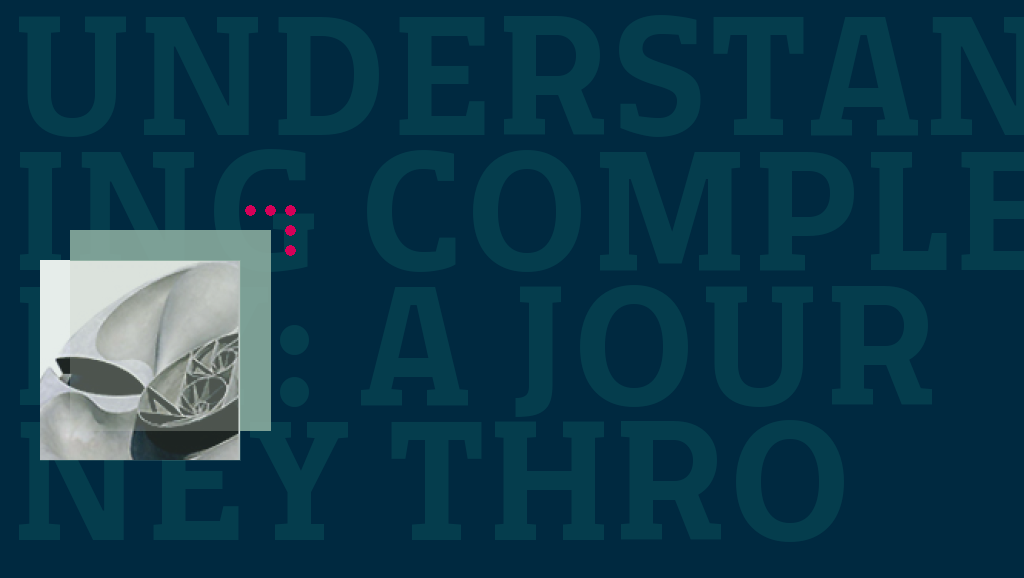The CSI-Piemonte Technical-Scientific Committee is organizing the Convention “Understanding complexity: a journey through science” to be held on November 22nd-23th 2007 in Turin.
The conference is promoted with support of the ISI Foundation and aims to help us reflect on complexity as something to be valued, and an intrinsic feature of natural, social and technological systems. Several subjects will be discussed: from the structure of living organisms to climate; from organising a company to financial market trends, to the evolution of the “international system”; from designing “intelligent” software to that of large communication networks such as Internet.
Thursday 22nd November
First session: Natural systems
A beehive, anthill, a flock of birds are formidable examples of natural, complex structures where single interacting elements following simple rules lead to a deeply detailed system that can determine new, unforeseeable, original forms of behaviour.
The scientific approach to complexity allows us to analyse the study the structure of natural systems, from how a single cell or organic structure such as the brain works, to the organisation of large eco-systems.
What opportunities does this offer for the prevention of natural calamities (like earthquakes and floods), or understanding the weather or protecting the environment? How can we add value to, and defend biodiversity, which is so fundamental to improving species and how they adapt to the environment? Can a complexity-based approach be a determining factor in understanding what life itself really is? And what ethical consequences are there for man placed at the centre of the universe by traditional science and now finding himself just one element in the entire “terrestrial system”?
Second session: Technological systems
The sheer power of modern computers to calculate and new simulation methods enable us to create models describing complex phenomenon, which are then applicable to different disciplines. The programme defines the behaviour of single agents at the very lowest structural level and how they interact provides us with the key to the system’s overall evolution.
Progress in the field of artificial intelligence, through cellular robots, neural networks and genetic algorisms, has led to the creation of artificial environments where single agents, free to move in their world of reference following some very elementary rules, can interact with the external environment. Their interaction gives shape to a system able to evolve and adapt to the different needs, managing to carry out tasks that a single body would be incapable of. Analysing the behaviour of single elements allows us to propose a series of potential scenarios without being able to pinpoint the one that will really occur.
How can we use this research to improve the management and target the development of large networks, above all Internet? What could be the consequences for content organisation, also bearing in mind the new forms of involvement permitted by Web 2.0 tools and the emerging folksonomy phenomenon, based on rules decided “popularly” by users?
What opportunities are there for designing a nation’s communication systems from phone to road and rail? How do we apply these technological models to education and entertainment?
Friday 23rd November
Inter-personal networks, labour organisations, political and economic systems: all those relations between human beings, considered either individually or as a group, can be considered complex structures surprisingly similar to natural systems.
An approach based on the interaction between paradigms from different disciplines, in the conviction that the traditional split between disciplines must be re-thought, can lead to greater understanding of human beings and their condition in all its ambivalence and contradictions.
How do these reflections affect social living? What contribution can be made to the study of social phenomenon born of apparently unforeseeable, random individual decisions? What are the collective effects on, for example, financial markets without in some way the causes being located back in the choice of single operators? What contribution can be made by new sciences to explain reality, such as econophysics using physics to analyse economic and financial conditions?
Complex systems are open, in that they are critically dependent on external factors: how do trends in our day and age influence the balance and historical-political dynamics of international systems; on the one hand globalisation and, on the other, the defence of the individual characteristics of a group?
Will the opportunity to highlight laws within systems that do not seem to be regulated, such as traffic in a city, enable us to forecast those more critical situations which we can seek to solve by better urban planning?
Free enrolment.
The registration form is available on the Web site.
For further information:
convegno.complessita@csi.it
tel. +39 011.316.9609/9048
















